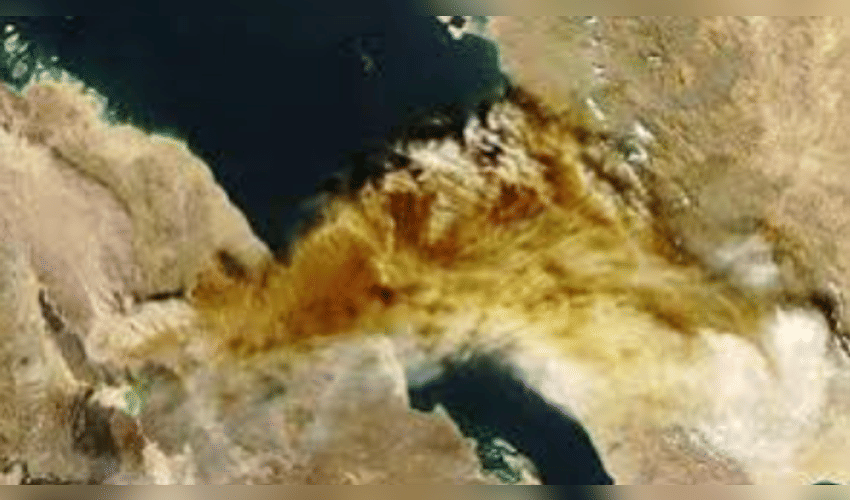News
Indian Aviation Faces Challenges Amid Volcanic Ash Drift from Ethiopia Eruption
Published On Tue, 25 Nov 2025
kartik Thakur
0 Views

A recent volcanic eruption from Ethiopias long-dormant Hayli Gubbi volcano has triggered significant disruption to Indian aviation, placing authorities and airlines on high alert. The eruption, occurring for the first time in nearly 10,000 years, released a massive plume of volcanic ash that has drifted eastward, entering Indian airspace over northern states including Gujarat, Rajasthan, Delhi-NCR, Punjab, and Haryana.
The Directorate General of Civil Aviation (DGCA) promptly issued an advisory instructing all Indian airlines to avoid airspaces affected by volcanic ash and adjust flight plans accordingly. Airlines such as Air India and Akasa Air have already canceled multiple domestic and international flights as a precautionary measure. Precautionary safety inspections are being conducted on aircraft that flew near ash-affected zones to check for any mechanical issues caused by the tiny volcanic particulates, which can damage jet engines and reduce visibility.
The India Meteorological Department (IMD) warned that the ash cloud, traveling at altitudes up to 45,000 feet, could reduce visibility, create hazy skies, and temporarily worsen pollution levels in the affected regions. The ash cloud is expected to move out of Indian airspace by the evening, moving further toward China. Meanwhile, flight routes have been altered to avoid the plume, causing logistical challenges amidst busy schedules. This incident highlights the sensitivity of global air travel to natural events and the necessity for continuous monitoring and quick response to ensure passenger safety and operational continuity.
In addition to safeguarding aviation operations, the event has sparked broader discussions on mitigating risks posed by transboundary natural phenomena that impact multiple countries across continents. Indias swift regulatory response serves as a case study in managing the air safety challenges of volcanic ash in one of the worlds busiest airspaces, emphasizing the importance of real-time data sharing among meteorological and aviation authorities. This volcanic eruption underscores how natural events thousands of miles away can ripple across the global transportation network, requiring coordinated international vigilance and preparedness.
Disclaimer: This image is taken from Reuters.



